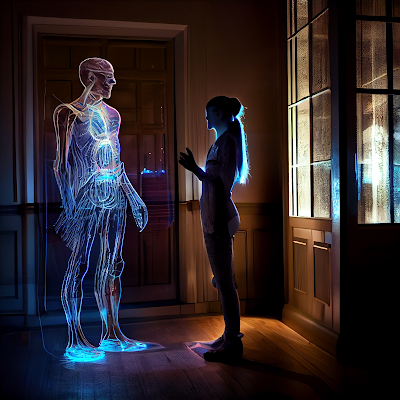Journey Through Time: Is Time Travel Possible?
Introduction
Time travel
is a concept that has fascinated scientists, philosophers, and the general
public for centuries. It is intriguing to think about traveling through time
and experiencing different eras or even changing the course of history. But is
it really possible to travel through time? In this blog post, we will explore
the possibility of time travel according to the laws of physics and discuss the
feasibility of such a feat.
Theoretical Possibilities of Time
Travel
The laws of
physics as we currently understand them do not rule out the possibility of time
travel. In fact, several theories of physics suggest that time travel may be
possible under certain conditions. One such theory is Einstein's theory of
general relativity, which predicts that time can be distorted by the presence
of massive objects and strong gravitational fields. This effect, known as time
dilation, means that time appears to move more slowly in stronger gravitational
fields.
Black Holes and Wormholes
Einstein's
theory of general relativity predicts the existence of black holes, regions of
space where gravity is so strong that nothing, not even light, can escape. If a
spacecraft were to enter a black hole, it could potentially travel through a
"wormhole" that may serve as a shortcut through time and space.
However, such an encounter is currently impossible due to the extreme
conditions that would be faced by any known technology.
The Many-Worlds Interpretation
Another
theory that suggests the possibility of time travel is the "many-worlds
interpretation" of quantum mechanics. According to this theory, every time
a quantum event occurs, the universe splits into multiple "parallel"
universes, each with its own distinct set of outcomes. The theory suggests that
it may be possible to travel between these universes, although the feasibility
of such a feat is highly questionable.
Current Limitations of Time Travel
Despite the
theoretical possibilities, there is currently no experimental evidence for the
existence of time travel. Additionally, the laws of physics as we currently
understand them would likely prohibit the existence of stable time loops, which
are a key component in many popular time travel scenarios. The prospect of
causality violations, which would occur if one were able to change past events,
would have severe consequences and make time travel impossible.
Conclusion:
While the
laws of physics do not rule out the possibility of time travel, the feasibility
of such a feat is highly questionable. Theoretical physicists have proposed
various ways in which time travel might be possible, such as through the use of
wormholes or black holes, but there is currently no experimental evidence to support
these ideas. Additionally, the prospect of causality violations and the lack of
stable time loops make time travel a highly unlikely occurrence. While the
concept of time travel is intriguing, it remains firmly in the realm of science
fiction for the time being.













Comments
Post a Comment